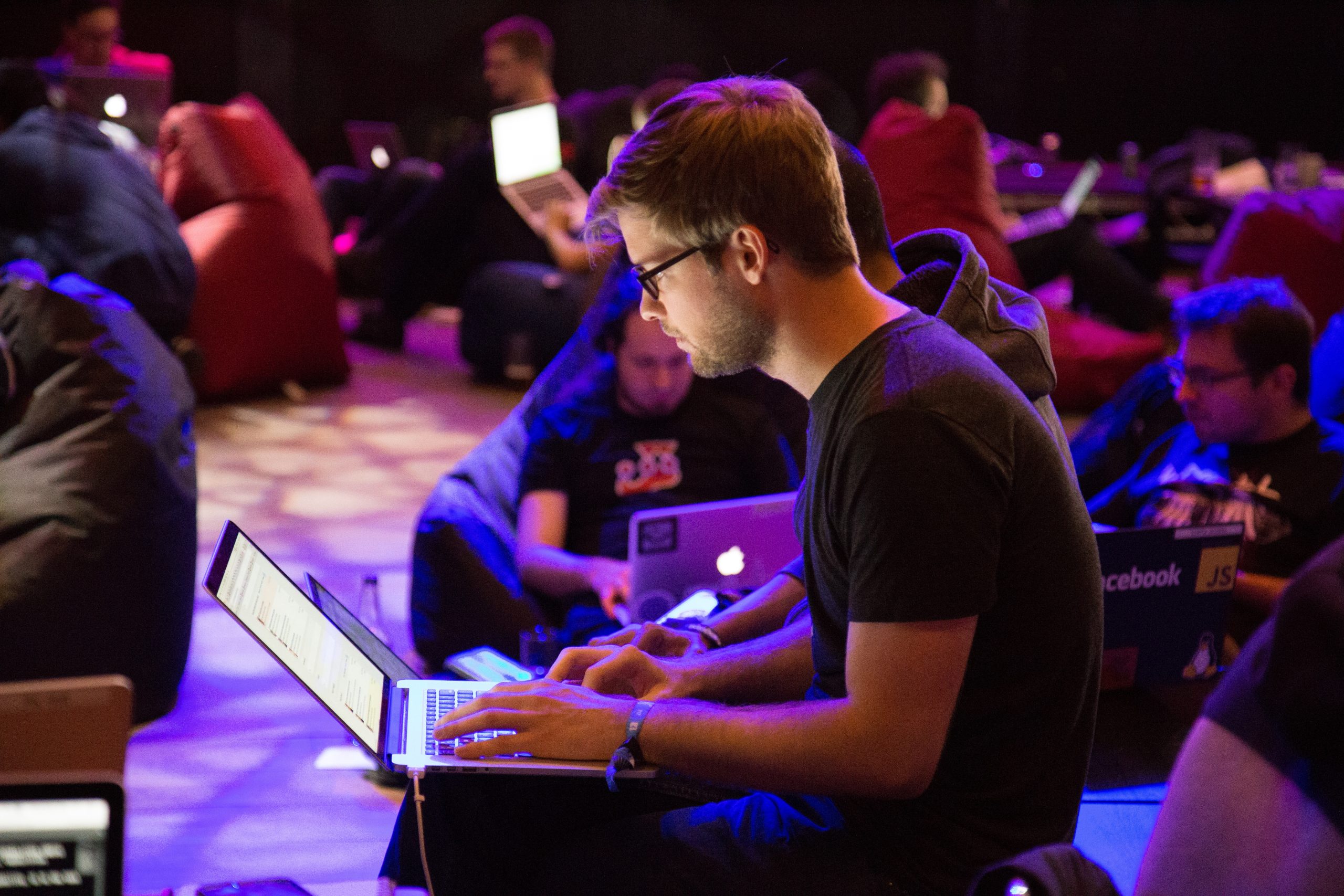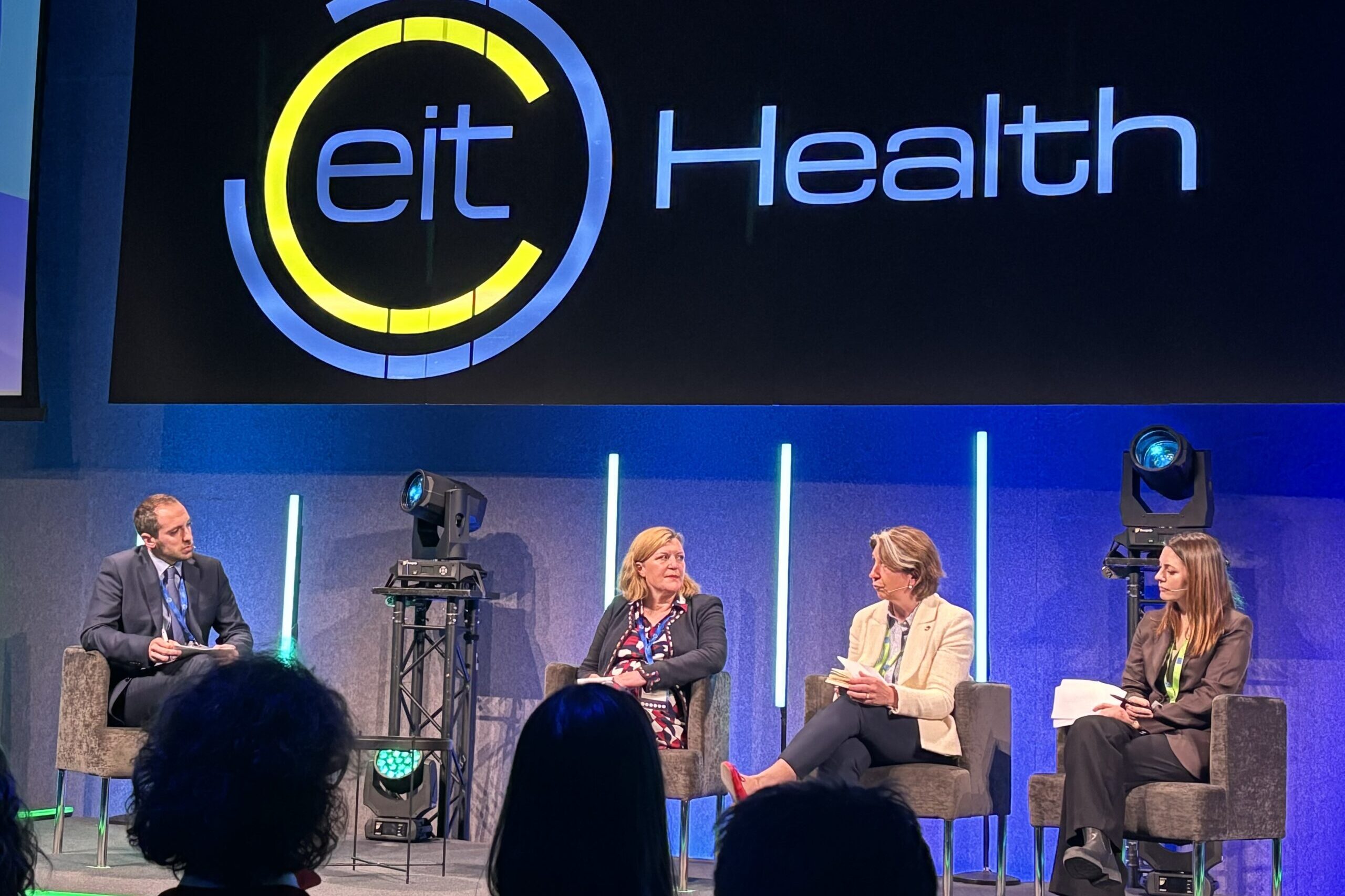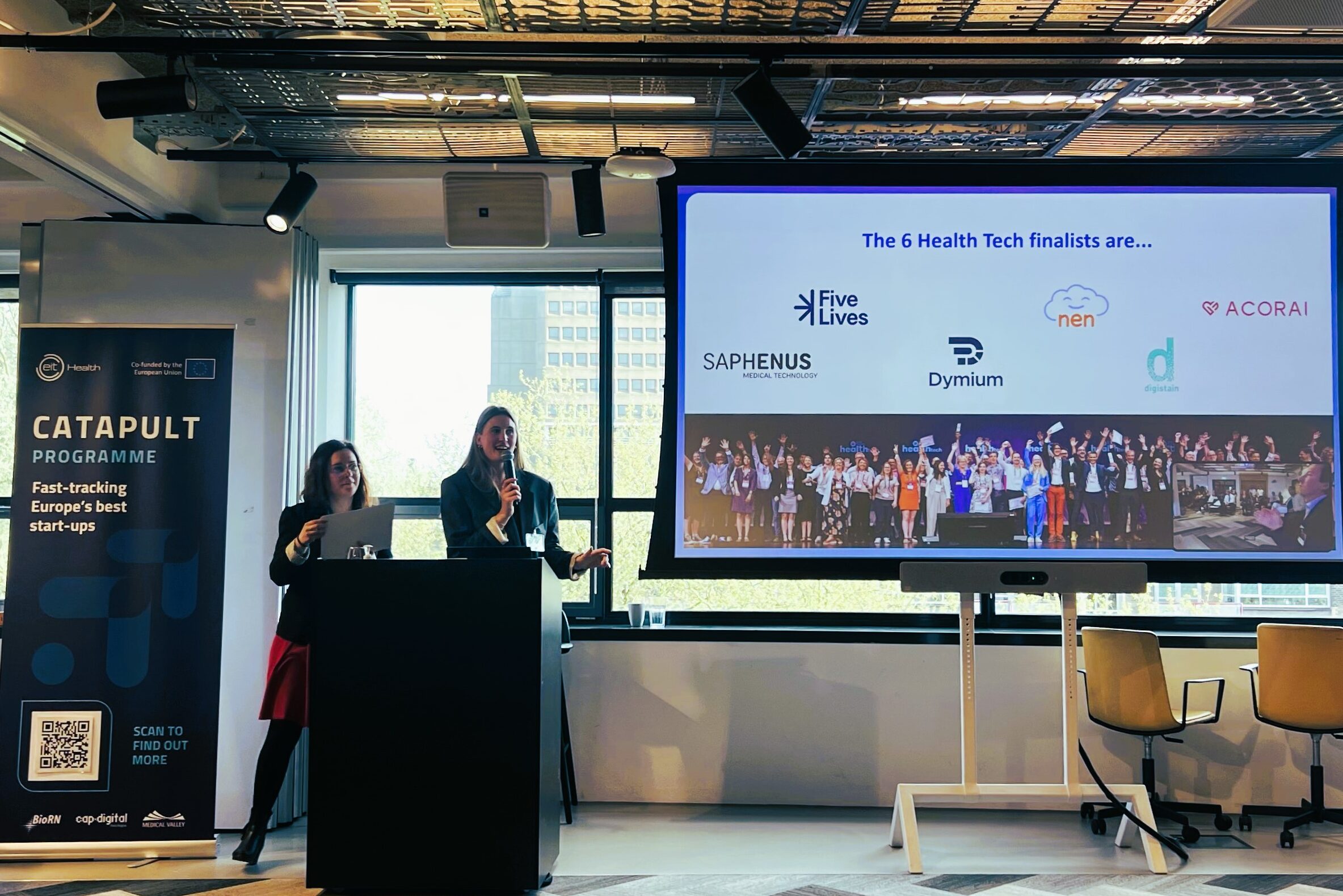19th April 2023
- On World Health Day (7 April), EIT Health Spain highlights the need to drive innovation to make health systems more sustainable, resilient and adapted to major health and social challenges.
- “Innovation helps to improve the efficiency and agility of processes, promotes more personalised treatment and can reduce detection and diagnosis times,” explains Izabel Alfany, Interim Managing Director of EIT Health Spain.
- Remote access to healthcare and digital solutions focused on prevention, self-care and even disease treatment and monitoring can support better health outcomes for patients and value-based healthcare.
On World Health Day on 7 April, EIT Health Spain, a Co-Location Centre (regional hub) of EIT Health, which is part of the European Institute of Innovation and Technology, a body of the European Union, highlights the role of innovation in health for a more efficient transformation of the health system that results in significant benefits for the patient.
In line with the key message of World Health Day, which focuses on the need to preserve strong health systems to provide both universal health coverage and emergency preparedness, “EIT Health believes that driving innovation in the health sector can contribute to creating a more equitable and accessible health system for all. By improving efficiency, quality and access to care, innovation can help reduce health inequalities and improve patients’ quality of life,” says Izabel Alfany, interim Managing Director of EIT Health Spain.
“Technological innovation in the healthcare sector can have a major impact on reducing costs for the healthcare system and improving its resilience. For example, the implementation of advanced technologies in the diagnosis and treatment of diseases can reduce healthcare costs by improving the efficiency and accuracy of medical procedures, and personalising treatments,” explains Alfany.
“In addition, technologies can also empower patients by facilitating their access to healthcare services. Remote access to healthcare and digital applications focused on prevention and self-care can help patients monitor their health and make informed decisions about their treatment,” she adds.
How EIT Health drives innovation
EIT Health is committed to the transformation of healthcare delivery to implement a resilient health system. “The public-private collaboration of all players in the health sector is the only way to address health innovation in Spain and Europe. Our partnership, which brings together large corporations, regional health systems, and public and private academic institutions, among other actors, is a living reflection of the fact that innovation needs this connection and collaborative spirit, sharing knowledge and developing collective efforts,” says Alfany.
EIT Health has different initiatives that support digital innovation and the development of the talent and skills needed for its adoption. “Artificial intelligence (AI), Big Data, telehealth or remote monitoring and wearables are some of the enabling technologies for innovation aimed at improving patients’ lives,” reveals Alfany. “Fast and safe patient access to digital health solutions and the use and sharing of health data for innovation in diagnosis and more personalised treatment are some of the keys to innovation, on which EIT Health is working together with the agents of the healthcare ecosystem,” she concludes.
Digital technological innovations have the potential to significantly promote more efficient and personalised care by providing patients with access to real-time health information, improving communication between patients and healthcare professionals and enabling the collection and analysis of large amounts of health data, allowing the identification of patterns and trends, through AI, personalising treatments and driving prevention and the adoption of healthy habits.
Examples of innovation
The HARMONICS project, supported by EIT Health, pursues harmonisation in data capture to provide high-value care for stroke patients, with the objectives of creating a centralised European registry and harmonising key performance indicators. “The use of this data will allow stroke patients to be monitored after hospital admission, ensuring better outcomes, increased chances of recovery and a reduced likelihood of recurrence,” says Alfany.
Another example is the start-up mjn-Neuro, which has developed the mjn-SERAS medical device, similar to a hearing aid, to predict epileptic seizures with high reliability thanks to an Artificial Intelligence algorithm. Between 1 and 3 minutes before the seizures, an alarm alerts patients via their mobile phone. During this time, patients can reach a safe place or position to avoid accidents and injuries, helping them to become independent and improving their quality of life. “Thanks to the support of EIT Health, mjn-SERAS is validating this solution with an international multicentre clinical study,” reveals Alfany.
On its side, the startup Leuko is developing PointCheck™, the first device for remote and non-invasive leukocyte monitoring, i.e. without the need for a blood draw. Immunosuppressed patients will be able to undergo tests more frequently, also from home, avoiding the risk of infection and without the need to travel to the medical centre.
Join the heartbeat of healthtech in Munich this June

Discover the third annual health.tech conference.
Health experts make recommendations on EHDS implementation

Discover our new Think Tank report.

